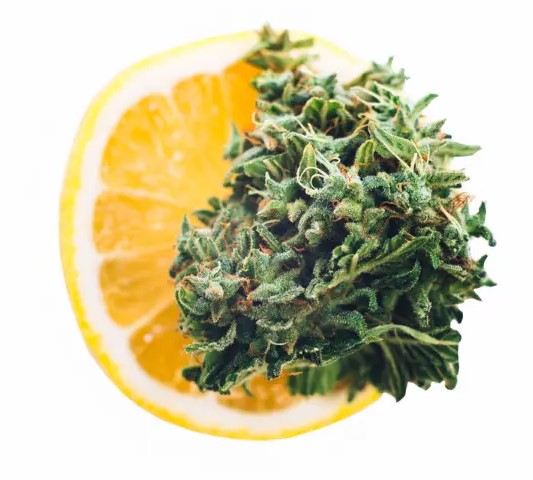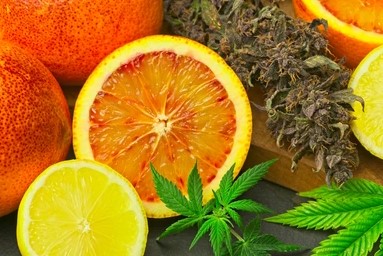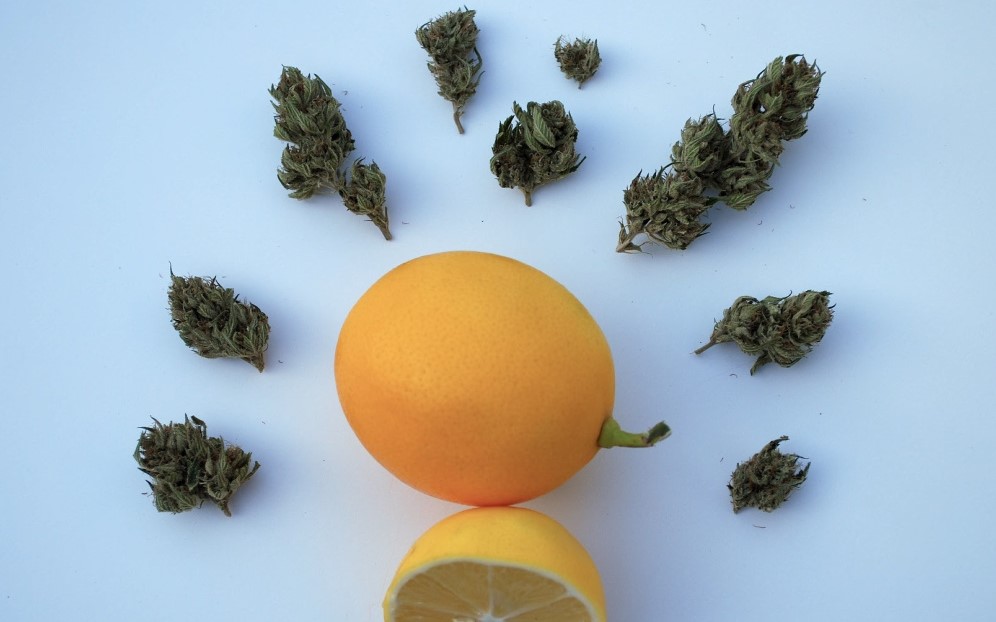Non classé
What is Limonene: Everything You Need to Know About Limonene
Terpenes, the odiferous hydrocarbons found in every known plant, have a bigger piece of the alternative medicine pie than ever before. Cannabis is to thank for this (in particular) because it has a unique ability to produce endocannabinoids. Looking to try something new? Check out this Pink Cake.
As we become more informed about Cannabis, we realize that other components, such as terpenes and flavonoids, contribute to the plant’s therapeutic effects. Terpenes and flavonoids also play an important part in determining a patient’s treatment outcomes and benefits.
The terpenes, which are chemicals found on the flower’s trichomes, define several aspects of flavor, smell, and euphoric effects. When combined with other chemical components such as cannabinoids, they may enhance medicinal capabilities known as the entourage effect.
Now that you’ve learned how the endocannabinoid system affects your mind, it’s time to learn how to synthesize cannabinoids. There are roughly 150 terpenes present in cannabis plants right now; their potential is being sought after by many and may ultimately define the effects produced and wanted. Terpenes exist in numerous plants to protect them from hazardous environmental conditions, such as predators.

Limonene also has the ability to absorb into the circulation and enhance the absorption of other terpenes.
Limonene in cannabis
Lemon essential oil boils at 176 degrees Celsius. It’s a clear and colorless liquid that is safe for people. However, it’s sometimes used as an insecticide or to keep cats and dogs away. Limonene is a terpene present in many plants, including cannabis. Many individuals think that terpenes modify the character of the high by modulating or steering it. Cannabis plants have distinct aromas due on the variety of different terpenes combined together.
What is Limonene?
D-Limonene, sometimes referred to as d-limonene for its chemical structure, is a terpene found in lemons and citrus.
It is present in resin glands as a monoterpene, which has been used for hundreds of years to help with a variety of health problems and include it as an ingredient in home items. It’s most prevalent in orange peels, other fruit rinds, cosmetics, and cleaning products.
Limonene is a common terpene produced by a variety of plants, including junipers, citrus fruits, lemons, rosemary, and peppermint among others.
The leaves of the lemon mint plant have anti-inflammatory properties, and can help with lung irritation as well. It also has antioxidant attributes (Hansen, Wolkoff & Larsen 2016). Its antianxiety effects are well-known, as is its antibacterial and antifungal properties. It promotes the immune system by stimulating it. It is now thought to aid in breast cancer cell death prevention.
While lemon-scented varieties are plentiful, this isn’t always the case. To determine if a souche has a lot of Limonene, you’ll need to analyze it in the lab. Limonene is frequently present in amounts below 2%.
Limonene aroma?
Limonene has a citrusy, pungent, sweet, and sour fragrance. It’s present in fruits like lemons and oranges and serves as a defensive strategy. Its scent aids against pests that interpret the scents as poisonous (Kushka, 2019).
The potential benefits of limonene on anxiety, depression, and stress
Both orally ingested limonene and inhaled limonene vapor have been shown in studies to decrease anxiety in lab mice. Limonene also reduced obsessive compulsive disorder-like behavior (OCD) in mice, according to several research. However, the effectiveness of limonene appears to be strain or type of anxiety test used, perhaps implying that its anxiety-reducing properties work for some but not others.
Limonene vapor inhalation activates areas of the brain that are linked to anxiety, sadness, and obsessive-compulsive disorder.
Limonene, a chemical found in lemons, has been shown to have antidepressant effects. There have only been a few human investigations on limonene’s antidepressant effects, but one small research of 12 hospitalized patients with depression showed encouraging results. Limonene vapor inhalation reduced the need for antidepressants in 9 of the individuals tested and improved stress hormone balance and immune function.
It’s uncertain how limonene works to produce these therapeutic effects. Inhalation of limonene vapor increases serotonin and dopamine levels in the brain, which are linked to anxiety, sadness, and OCD. Now it’s unknown how limonene raises these neurotransmitter levels. Is it just the olfactory system that is stimulated by limonene, or does it also have an effect on brain cells? The actual mechanism is a question for future study, although it’s probably a mix of both stimulating the olfactory system as well as direct cellular action.

Limonene-dominant cannabis strains
Limonene levels are highly variable across strains and samples of a single strain, as they do with most terpenes. The strain Cinex, for example, has relatively high limonene content on average, but the degree of individual samples at your local cannabis shop may differ considerably.
These strains are usually limonene-dominant in their terpene profiles:
- Banana OG
- Berry White
- Black Cherry Soda
- Cinex
- Do-Si-Dos
- MAC
- Purple Hindu Kush
- Quantum Kush
- Strawberry Banana
- Tahoe OG
- Wedding Cake
- White Fire OG
Do Terpenes Like Limonene Get You High?
Did you know that THC potency alone isn’t a predictor of how psychedelic the strain is?
Terpenes can help THC’s euphoric effects, but they aren’t psychoactive in and of themselves. While terpenes aren’t intoxicating on their own, they do play a role in how you feel when taking THC or CBD. Terpenes have been studied in relation to cannabinoids and other cannabis compounds, and the findings suggest that they have beneficial co-dependent effects. The fact that terpenes, such as limonene, assist decrease THC-related anxiety spikes is one of the most significant combined effects discovered to date.
Sources of Limonene in your Diet
- Limonene is a terpene that one can often find in citrus fruits such as lemons, limes, and oranges. In reality, it accounts for around 97% of the essential oils found in orange peels.
- This chemical, also known as a “flavoring” or a “sweetener,” may be found in many well-known products, including soft drinks, sweets, and desserts.
- Limonene is also a common component in cleaning products and cosmetics, as you may expect.
- Limonene, a component of many citrus fruits, is a powerful anti-parasitic and anti-bacterial essential oil that you can find in alternative bug repellents.
- Limonene is a citrus-derived antioxidant, anti-inflammatory, and mood-boosting chemical that can be found in dietary supplements as liquids and capsules.
- Finally, this citrusy substance is one of the most frequently used components in essential oils due to its uplifting and therapeutic effects.
What Cannabis Strains Have the Most Limonene?
Limonene may be found in a variety of strains, but it is most common in Sativas. Limonene also appears in numerous hybrid strains and certain indica types. Here are some of the most well-known limonene rich strains on the market today:
Lemon OG
Lemon OG is a unique hybrid strain that has an intense, fruity flavor and about 20% THC concentration. Those who want to benefit from the effects of limonene for anxiety and stress reduction should try Lemon OG.
Wedding Cake
Wedding Cake is a high-THC cannabis strain with a citrus limonene scent and one of the most popular. It’s well-known for its pleasant taste and relaxing effects.
Cinex
Cinex is a mix of Cinderella 99 and Vortex. It’s a wonderful strain to use when you’re feeling down since it has an amazing citrus scent. THC content in this variety ranges between 15% and 25 percent, depending on the growing techniques.
Giesel
Gisele is a cross between Mass Super Skunk and Chemdog that’s known for its limonene-derived citrus punch. Gisele, which has around 15% THC, produces a cerebral and physical relaxation that stimulates both the mind and body.
Durban Poison
Durban Poison is a South African “pure sativa” known for its sweet scent and stimulating effects. This well-known limonene strain is great for daytime warriors looking to stimulate creativity and interest, whether on a walk or painting indoors. THC levels in Durban Poison can reach 24%, making it one of the world’s most powerful marijuana strains.
Jack Herer
The popularity of Jack Herer as a focus, pleasure, and creativity booster is well-deserved. While there are several different types of Jack Herer plants, the majority are about 55 percent sativa dominant. It is generally accepted that Jack Hereer strains have a THC concentration of around 18 to 24 percent.


